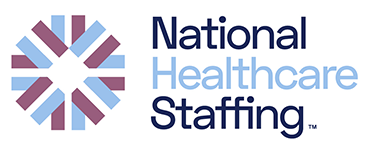A study of 60,000 nurses’ salaries by Premier, a company that analyzes healthcare data, found that the average annual U.S. nursing salary rose 4% during the first nine months of 2021 to $81,376, the Wall Street Journal reported. And that doesn’t even include signing bonuses, which can average $15,000, according to Incredible Health, a hiring service for healthcare workers.
By comparison, there was a 3.3% uptick in nurses’ salaries in 2020, and an increase of 2.6% in 2019.
The higher salaries are largely due to the high demand for caregivers, high turnover rates, and worker fatigue, according to an industry expert.
In one particularly dramatic example, Jefferson Health, a healthcare network operating in southern New Jersey and the Greater Philadelphia area, boosted compensation this past May for its 8,000 nurses by an average of 10%, according to Dr. Kate FitzPatrick, who works as the network’s chief nurse executive officer. She said it did so to make sure it wouldn’t lose its healthcare workers to better paying jobs, and to help combat staff burnout.
“In my career as a nurse leader, to give a 10% increase is pretty unprecedented,” she told Fortune.
The nurse turnover rate at hospitals, which includes nurses who left their jobs, rose 2.8% in 2020 alone to an 18.7% annual rate, according to the 2021 NSI National Health Care Retention & RN Staffing Report.
It’s no secret that the pandemic has been brutal for nurses and other health care workers, from the risk of exposure to COVID-19, to the emotional burden of serving as “proxy” family members for isolated patients. The horrors of COVID-19 and hectic hospitals with limited hands on deck have understandably led many nurses to leave.
Around 92% of 6,500 critical care nurses “believe the pandemic has depleted nurses and will cut their careers short,” according to an American Association of Critical-Care Nurses survey published in September 2021. The American Nurses Association (ANA) has predicted that 500,000 nurses will leave the profession entirely in 2022, potentially causing more than a million vacancies in the field.
“What’s happening with COVID-19 and the impact on health care workers—we’re not going to fully appreciate for years to come,” said FitzPatrick. Nurses are experiencing what she called a “moral injury from having to observe and bear witness to suffering, death, isolation that they haven’t had to experience before.”
Hospitals and health care systems also have to compete with other options that nurses have within the same profession, like travel nursing, which allows registered nurses to take short-term contracts in hospitals around the country (and sometimes the globe) experiencing high demand for healthcare workers. The contracts tend to last no more than three months, according to Trusted Health, which helps RN’s find contract jobs.
Travel nursing can be far more lucrative than traditional hospital roles, according to Fitzpatrick, and Jefferson Health has lost nurses to “high hourly rate travel gigs” that are “hard to compete with,” she said. Hospitals are also spending around 62.5% more on travel nurses than they were at the beginning of 2020, according to the NSI report.
Back at Jefferson Health, FitzPatrick hopes that a significant salary increase will be enough to keep the number of nurses they need and offset the effects of employee burnout.
“There’s some anecdotal [evidence] that the pay increase was very well received, very positive,” said FitzPatrick. “And I think for some that might have been contemplating taking another opportunity, they decided to stay.”

